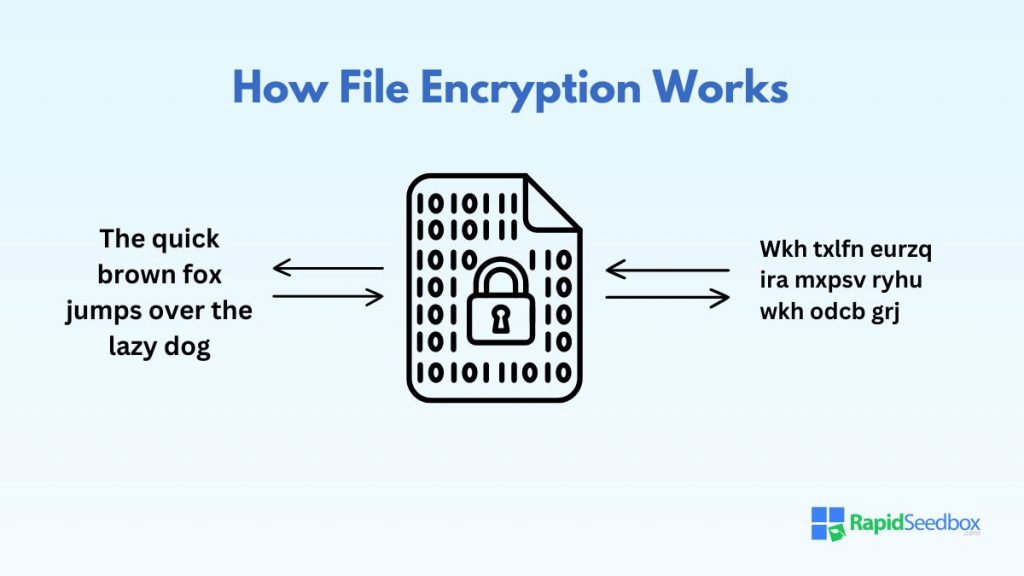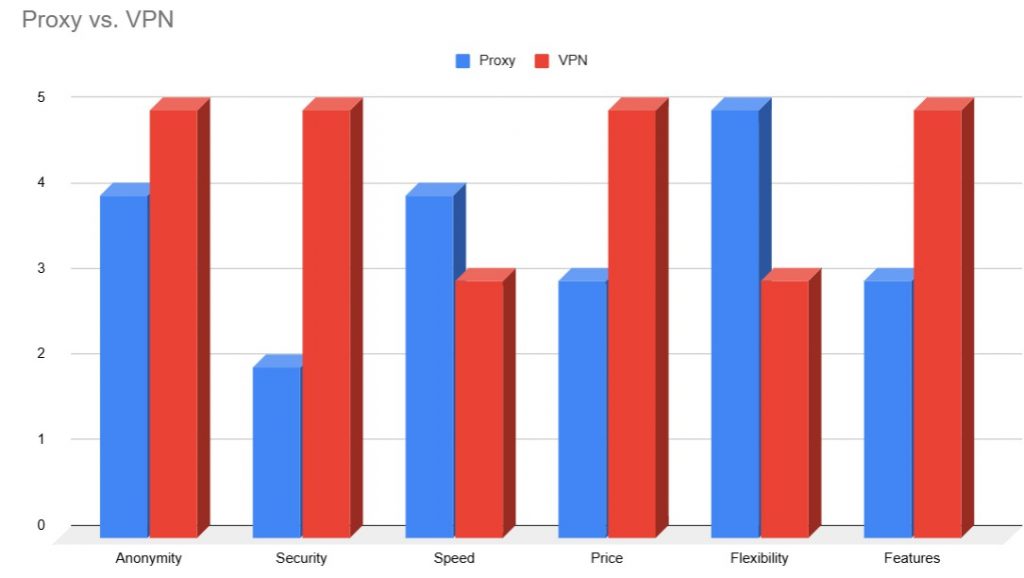Proxy servers are versatile tools. Once correctly configured, they can handle almost any networking function. But in this age of rising cybersecurity risks, an increasingly common question has been, “Does a proxy encrypt data?”
In this article, we’ll explore whether proxies encrypt data, why they typically do not, and how you can determine if your proxy offers encryption. We’ll also discuss alternatives to proxies for securing your data.
Table of Contents
- Does a Proxy Encrypt Data?
- Why Proxies Do Not Generally Encrypt Data
- How to Tell If Your Proxy Encrypts Data
- Exceptions: When Proxies May Encrypt Data
- Frequently Asked Questions
- Final Thoughts
1. Does a Proxy Encrypt Data?

The simple answer is no; most proxies do not encrypt data. Proxy servers are primarily intended to route your requests to the intended destination. This process provides some anonymity since it masks your IP address, but it doesn’t involve encrypting the data being transmitted.
Standard proxy servers typically pass data in its original form. If the data isn’t encrypted on your device, anyone who intercepts it at any point can read it. The fact is that proxies aren’t meant to secure data – there are other tools better designed for that purpose.
2. Why Proxies Do Not Generally Encrypt Data

Most proxies are designed as passthroughs, meaning they manage and direct internet traffic. Security, while important, isn’t a core purpose for proxy servers; hence, proxies often lack data encryption.
Here are the several reasons why proxies generally lack encryption:
a. Purpose and Functionality
The core purpose of a proxy is to act as an intermediary that forwards requests from a user to the internet. This involves routing traffic rather than securing it. Encryption requires additional processing power and resources, which proxies typically do not prioritize.
For example, web proxies like Interstellar Proxy or Proxyium allow users to access websites anonymously for free. These services primarily provide anonymity by concealing the user’s IP address. However, they do not encrypt the data being transmitted
b. Performance Considerations
Encryption is a resource-intensive process that requires additional processing power to convert data into a secure, encoded format. Proxies prioritize speed and efficiency, and adding encryption could slow down connection speeds and increase latency.
Consider a caching proxy used by large enterprises or content delivery networks (CDNs) like Akamai. These proxies store copies of frequently accessed content to reduce load times. If these proxies were to encrypt data, the performance benefits would diminish.
As a result, most caching proxies do not employ encryption, focusing instead on quick content delivery.
c. Cost and Complexity
Implementing encryption technology requires significant investment in both hardware and software. Encryption protocols like SSL/TLS require specialized certificates, ongoing maintenance, and robust server infrastructure to handle the additional computational load.
For many proxy providers, particularly those offering free or low-cost services, these added costs are not justifiable, especially when their primary market is users looking for basic IP masking or geo-unblocking services.
d. Different Use Cases
The specific use case of a proxy often determines whether encryption is necessary. In many scenarios, encryption is not a priority.
For example, institutions like schools or businesses use transparent proxies to monitor and filter web traffic. These proxies do not require encryption since they aim to oversee user activity rather than protect it.
Similarly, reverse proxies used by web servers to distribute incoming traffic across multiple backend servers focus on load balancing and optimizing server performance. In these cases, encryption is typically handled by the servers themselves.
e. Security vs. Anonymity
It’s important to distinguish between security and anonymity. Proxies are primarily designed to provide the latter. While hiding your IP address can offer anonymity, it does not protect the actual content of your data.
For example, SOCKS proxies, used for torrenting applications, do not encrypt data. They simply relay traffic between users and servers, allowing IP masking without data protection. The lack of encryption can expose user data to potential eavesdropping.
3. Exceptions: When Proxies May Encrypt Data
While most proxies do not encrypt data, there are certain exceptions where they may offer encryption. Understanding these exceptions can help you choose the right tool for your security needs.
Here are some scenarios and types of proxies that may provide encryption.
- HTTPS Proxies: HTTPS proxies use SSL/TLS protocols to encrypt the data between your device and the proxy server.
- SOCKS5 Proxies with Encryption: SOCKS5 proxies do not encrypt data by default. However, depending on the application, some can use encryption.
- Proxies Provided by VPN Services: Many VPN services offer proxy options with encryption as part of their standard features.
- Private and Corporate Proxies: Organizations that handle confidential information, like financial institutions or healthcare providers, may use encrypted proxies.
- Proxy-Chaining with Encrypted Proxies: Another exception occurs when users employ proxy-chaining techniques, where multiple proxies are used sequentially to enhance security and anonymity.
a. When to Use Encrypted Proxies
While most proxy users prioritize anonymity and access over security, there are specific situations where using an encrypted proxy is crucial:
- Accessing Sensitive Information: An encrypted proxy is necessary when handling sensitive data, such as financial transactions or personal information.
- Bypassing Censorship in High-Risk Areas: Encrypted proxies can provide anonymity and security in regions with strict internet censorship or surveillance.
- Secure Remote Work: Organizations with remote employees may use encrypted proxies to reduce the risk of data breaches.
Looking for a Proxy That Protects Your Data?
RapidSeedbox offers high-performance HTTPS proxies that encrypt your data, ensuring fast and reliable connections. Don’t settle for basic proxies that leave your information vulnerable.
4. How to Tell If Your Proxy Encrypts Data
If you’re concerned about the security of your data and want to ensure that your proxy is providing encryption, there are several ways to verify this. Below are some steps and indicators that can help determine whether your proxy service encrypts your data.
a. Check the Proxy Type
The type of proxy you’re using is a significant indicator of whether or not your data is encrypted. For instance:
- HTTP Proxies: These are designed to handle standard web traffic. If you see that your proxy is an HTTP proxy, your data is likely not encrypted.
- HTTPS Proxies: These are extensions of HTTP proxies but with added security. They use SSL/TLS protocols to encrypt the data between your browser and the proxy server.
- SOCKS5 Proxies: SOCKS5 proxies can be configured to use encryption, but they do not encrypt data by default. You’ll need to verify this through your proxy settings or provider documentation.
b. Examine the Proxy Settings
Your browser or application settings can provide clues about whether your proxy encrypts data:
- Browser Settings: In your browser’s proxy settings, if the proxy server address begins with “https://” instead of “http://,” it indicates that the proxy uses an encrypted connection.
- Application Settings: Some applications allow you to specify whether to use encrypted connections. For example, some torrent clients like qBittorrent have the option to enable encryption.
c. Check the Proxy Service Documentation
If you’re using a proxy service, review the documentation provided by the service provider. Many proxy services will clearly state whether they offer encryption and under what conditions. Look for terms like “SSL,” “TLS,” or “HTTPS” in the service descriptions.
Note: Premium proxy services are more likely to offer encryption as part of their package. For example, RapidSeedbox offers HTTPS on residential and datacenter proxies. On the other hand, free proxies often do not provide encryption due to the associated costs.
d. Use Online Tools
There are several online tools available that can help you test whether your proxy is encrypting data:
- SSL Checker: Websites like SSL Labs offer tools to check the security of an SSL connection. By entering your proxy server’s address, you can see whether it uses SSL/TLS encryption.
- Proxy Detection Sites: Some websites can detect whether you are using a proxy and if that proxy is encrypting traffic. These tools often analyze the headers and certificates the proxy server uses to determine if encryption exists.
e. Inspect the Traffic
Using network analysis tools like Wireshark, you can manually inspect the traffic between your device and the proxy server. When you analyze the traffic:
- Encrypted Traffic: If the traffic is encrypted, the data is unreadable and appears as a series of random characters or encrypted packets.
- Unencrypted Traffic: If the traffic is not encrypted, the data will be visible in plain text, making it easy for anyone intercepting the traffic to read it.
5. Frequently Asked Questions
Most standard proxies, such as HTTP, do not encrypt the data passing through them. If you need encrypted traffic, look for HTTPS proxies or use a VPN, which encrypts all your internet traffic by default.
A VPN is generally better than a proxy for security because it encrypts all your internet traffic, not just specific browser or application traffic. VPNs use robust encryption protocols, making them ideal for protecting sensitive data.
While a proxy focuses on rerouting and potentially hiding your online activity, a firewall protects your network from unauthorized access and cyber threats based on predetermined security rules.
HTTPS is essential for secure browsing, especially when dealing with sensitive information such as passwords, credit card details, or personal data. HTTPS encrypts the data transmitted between your browser and the website.
Most free proxies do not offer encryption. They are designed to be simple, cost-effective solutions for basic tasks like bypassing geo-restrictions. Free proxies typically prioritize speed and ease of use over security.
6. Final Thoughts
While proxies are valuable tools for masking your IP address, bypassing geo-restrictions, and accessing blocked content, they do not inherently provide the robust data protection many users assume.
There are exceptions where proxies provide encryption, such as HTTPS proxies or specialized services offered by premium providers. However, consider alternatives such as VPNs or end-to-end encryption if your primary concern is security and data protection.
Worried About Data Interception?
Protect yourself with RapidSeedbox’s encrypted proxies. Unlike standard proxies, our services protect your data from potential threats, offering a safe and private browsing experience.
0Comments